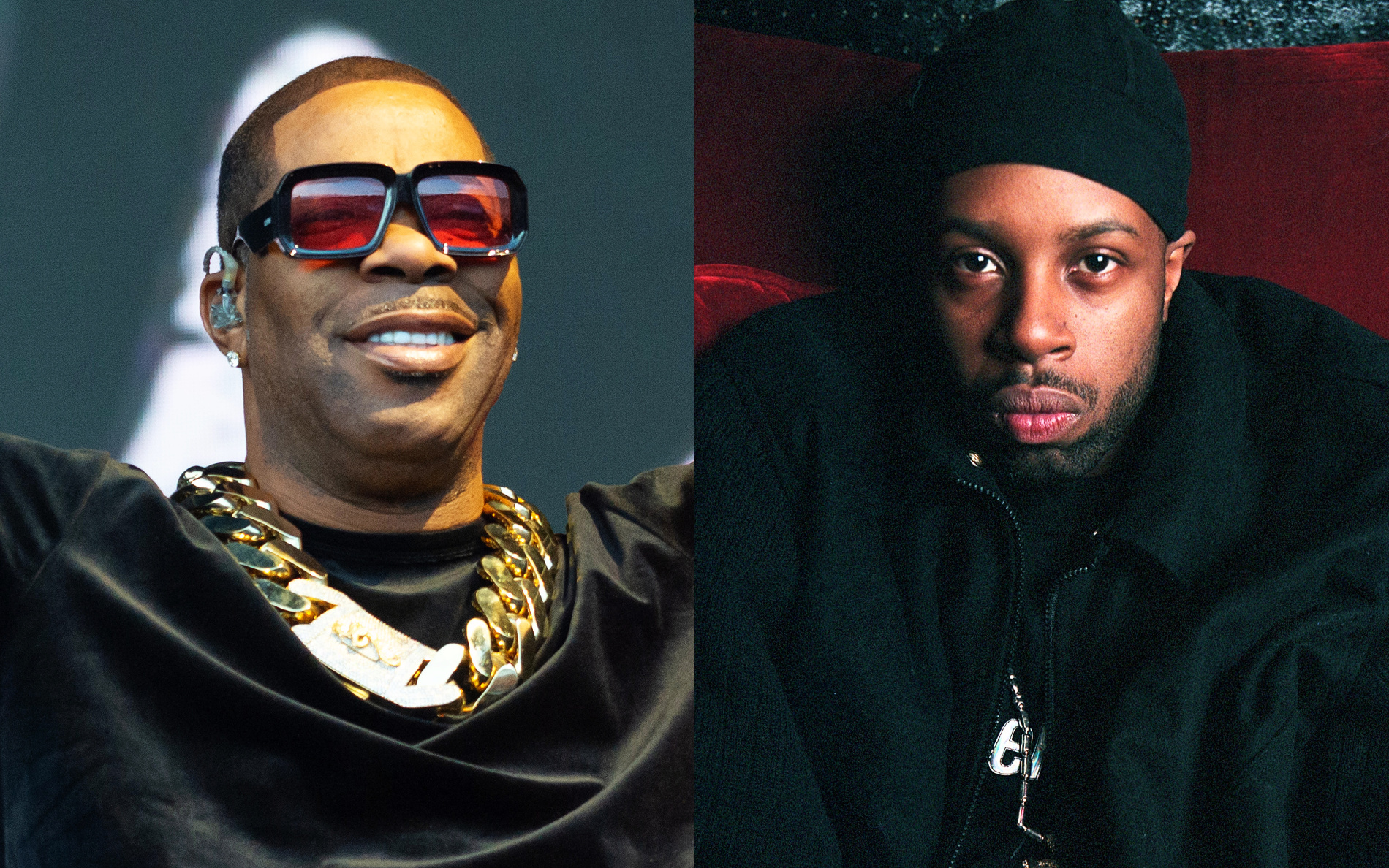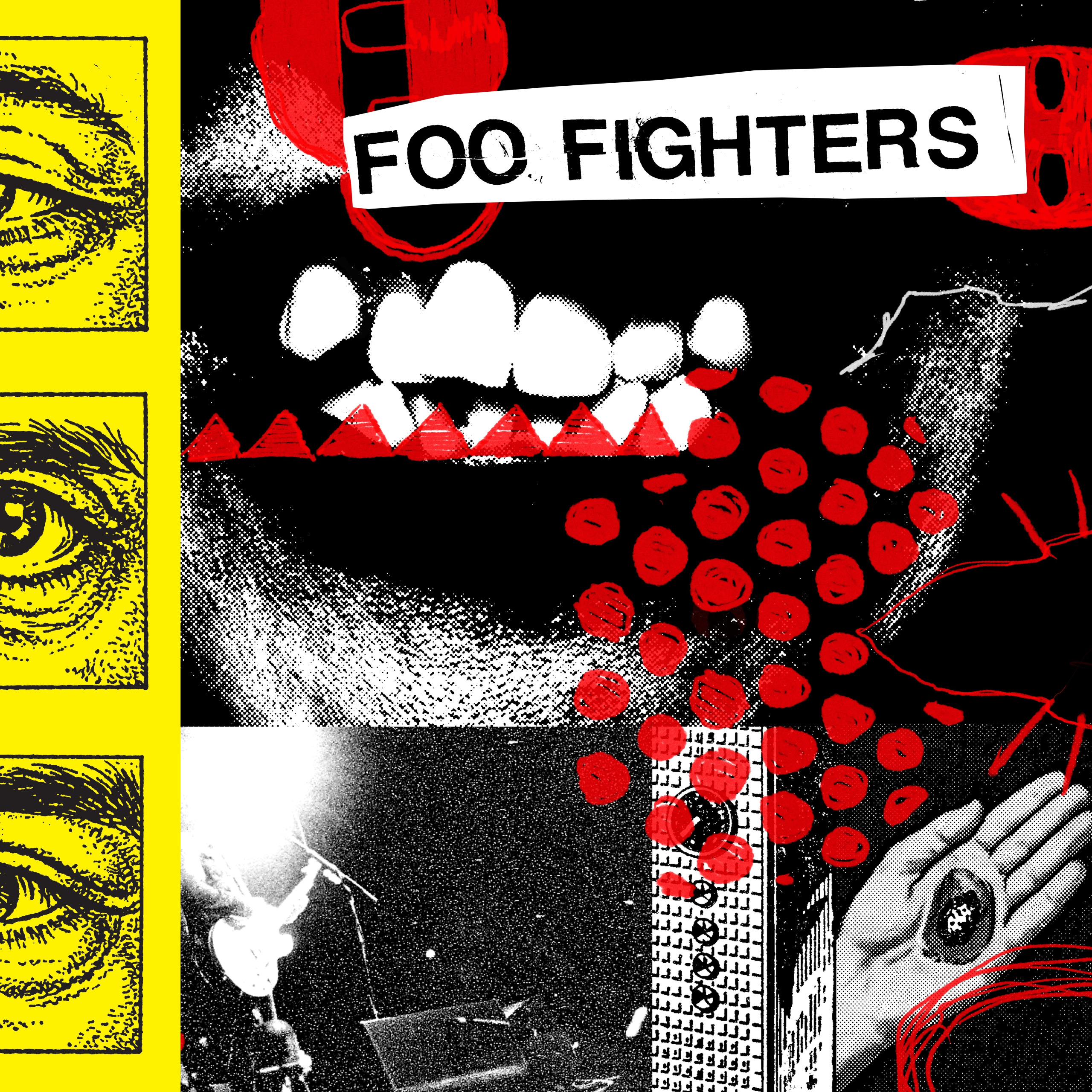The All-American Rejects were the scene’s most prolific radio darlings throughout the early to late 2000s, scoring countless chart-topping singles and eclipsing the Warped Tour circuit. And while it wouldn’t be uncommon to hear the band in any flavor of the month coming-of-age teen comedy or rom-com during their initial peak, they always wanted to make it known that they were not aspiring to become the biggest band in the world — it was always for the love of the music they created and a shared commitment to artistic integrity.
Following the release of their fourth and last studio album, Kids in the Street, in 2012, the All-American Rejects have yet to deliver a proper follow-up album in the 11 years that have since passed. It’s a testament to the band’s pledge to keep their legacy as sacred as possible and resist to the urge for a quick cash grab or a shallow venture into the murky waters of nostalgia. Nostalgia is a bit of a double-edged sword for the band, who, on the one hand, cannot avoid that the music they released and the scene they were initially a part of is having a significant resurgence. On the other, they have a unique opportunity now to prove that they are more than the sum of their biggest radio singles.
Read more: 10 most criminally underrated the All-American Rejects songs
In 2023, the All-American Rejects are now in a unique position where their music is being introduced to younger audiences who might not have even been alive upon the release of their debut studio album in 2002. So how does a band with four timeless records, a host of hit singles, and a die-hard fan base of both scene veterans and eager newcomers approach the next chapter of their careers? For starters, they tour, but in this case, they put together one of the summer’s most stacked lineup with the aptly titled Wet Hot All-American Summer Tour.
Joining the All-American Rejects is none other than their closest musical peers who either came up alongside them during their initial rise or inspired their very journey from the beginning with support from the Get Up Kids, the Starting Line, Motion City Soundtrack, and New Found Glory. The Wet Hot All-American Summer Tour is not simply a tour for nostalgia’s sake; it is a celebration of the hard work and impactful songs that allow a band to enter legacy status. The Wet Hot All-American Summer Tour is proof that while the years have passed and the world has changed considerably, the All-American Rejects and their peers still have so much left to say.
In an exclusive interview, we spoke with the All-American Rejects’ frontman and bassist Tyson Ritter and guitarist Nick Wheeler to discuss the Wet Hot All-American Summer Tour, nostalgia, and the prospect of new music.
Why does now feel like the right time for the All-American Rejects to embark on their first major headlining tour in nearly a decade?
NICK WHEELER: I think it’s the perfect storm. It’s been a long time since we have done a headlining tour, and while we released a few tunes and did a couple of support tours five or six years ago, it’s mostly been one-offs. Whether it was festivals or corporate shows, we were not necessarily playing for our own fans, so we started doing a few club shows before COVID. When that went away, we just sat at home for a couple of years before we finally got back out there in 2022. The When We Were Young festival, in particular, not only showed us that people are still excited about this type of music again, but we were just as happy, excited, and stoked to play for our fans again.

AAR at When We Were Young 2022. Jawn Rocha
TYSON RITTER: It just felt correct for us to do this tour. There was no reason to pander to a crowd by releasing something new that wasn’t heartfelt or would open up a beast that only wanted to feed on the memories of why this band solidified itself in the first place. If it is the right time for something, it’s to see if people can finally acknowledge that this is a band, not just songs. We were a band from Oklahoma with rock shirts and blue jeans, and we have always been a band where identity was not as important as the music we made, whereas our contemporaries were a lot more calculated about what it looked like and what it smelled like. We just wanted to do our own thing. This tour is for us to remember that we have a body of work that can stand up in front of the crowd and not only transport you back to a place but also be something more than just a quick fix or a big MTV hit.
For the tour, you put together an incredible package of iconic bands to support you that feels like a gift to your dedicated fans with how curated it is. How important was it to highlight your musical peers who came up alongside you and also offer fans a one-of-a-kind experience?
WHEELER: It was like that meme of Charlie Day from It’s Always Sunny In Philadelphia, where we brainstormed for several months. [Laughs.] This is literally our dream package.
RITTER: While we were doing demos for our first record, we took the address off the back of the Get Up Kids record Four Minute Mile for Doghouse Records and sent an unsolicited demo to them that they pulled out of the trash and signed us. That’s why the Get Up Kids are on this tour for me, and they are a seminal part of our existence in more than just a musical atmosphere. Motion City Soundtrack was the first band we toured with in the Midwest, and we came up at the same time for those seminal moments in our band’s career. With the Starting Line, we did one of our first big tours with them, which was a huge benchmark moment for us. [Not to mention], with New Found Glory, I was 14 covering their music, so it’s a full-circle moment to get to tour with them now. This [tour] is a walkthrough of our fucking diary of life, and it’s deeply personal for us.
Another important aspect of this tour is that it will allow new and younger fans to experience your music live for the first time. Do you find yourselves considering the impact your music has had on the next generation, where kids are looking to bands like All-American Rejects or My Chemical Romance as the Nirvana of their age?
WHEELER: There’s something special about this scene and the music, even if we never felt like we belonged to it. I think our songs helped us transcend and allowed us to do the radio and MTV thing, but really it’s just the cycle of nostalgia now. When I started touring in 2002, I was only listening to ’80s music, and now here we are 20 years later, and people are listening to 2000s music again.
RITTER: The new generation gets to purely absorb [our band] in a random flicker of an algorithmic introduction that’s pure without any predisposed ideas that this band is “too cool” or “too popular.” We had more songs on the radio than any of the bands [in our scene] and threw our tunes in every 2000s rom-com movie, which turned many people off, but I think now people get to see that we made a real fucking offering. To be able to highlight that to a new generation is cooler than [simply] trying to stay relevant.
2023 also marks the 15th anniversary of the release of your third album, When The World Comes Down. Are there any plans to do anything special to celebrate this milestone or highlight some of those songs in the upcoming setlist?
WHEELER: We’re not the type of band to play a record front to back, but we have always had fun with vinyl repressings and special releases.
Ritter: “Gives You Hell” [the lead single from When The World Comes Down] was a song that became bigger than the band, while the rest of that record got overlooked. With that album, we were trying to find a depth with the rock within us. I honestly don’t know what songs we would pull from the record for the upcoming shows other than “Gives You Hell.”
“Mona Lisa” would be cool.
RITTER: There you go! “Mona Lisa” is definitely going to come out during the set. That’s a really special song to me.
Will this upcoming tour reinvigorate the band’s creativity and potentially open the door to writing the long-awaited fifth All-American Rejects album?
WHEELER: We have yet to find that magic formula for making a true, new Rejects record, but maybe we will over the summer. This will be the first time we will all live together for the first time in six years — it will be a trip, man. There are no plans, but you can never say never. If it feels right and works out, then great, but we’ll never do anything to capitalize on a moment. One of the reasons there hasn’t been a fifth Rejects record is that we refuse to compromise our taste and excitement about a project because it always has to be better than the last one.
RITTER: I have to want to do a Rejects record more than anything in the world for me to even approach it. To go into the Rejects’ land again, it can’t be the same this time.







